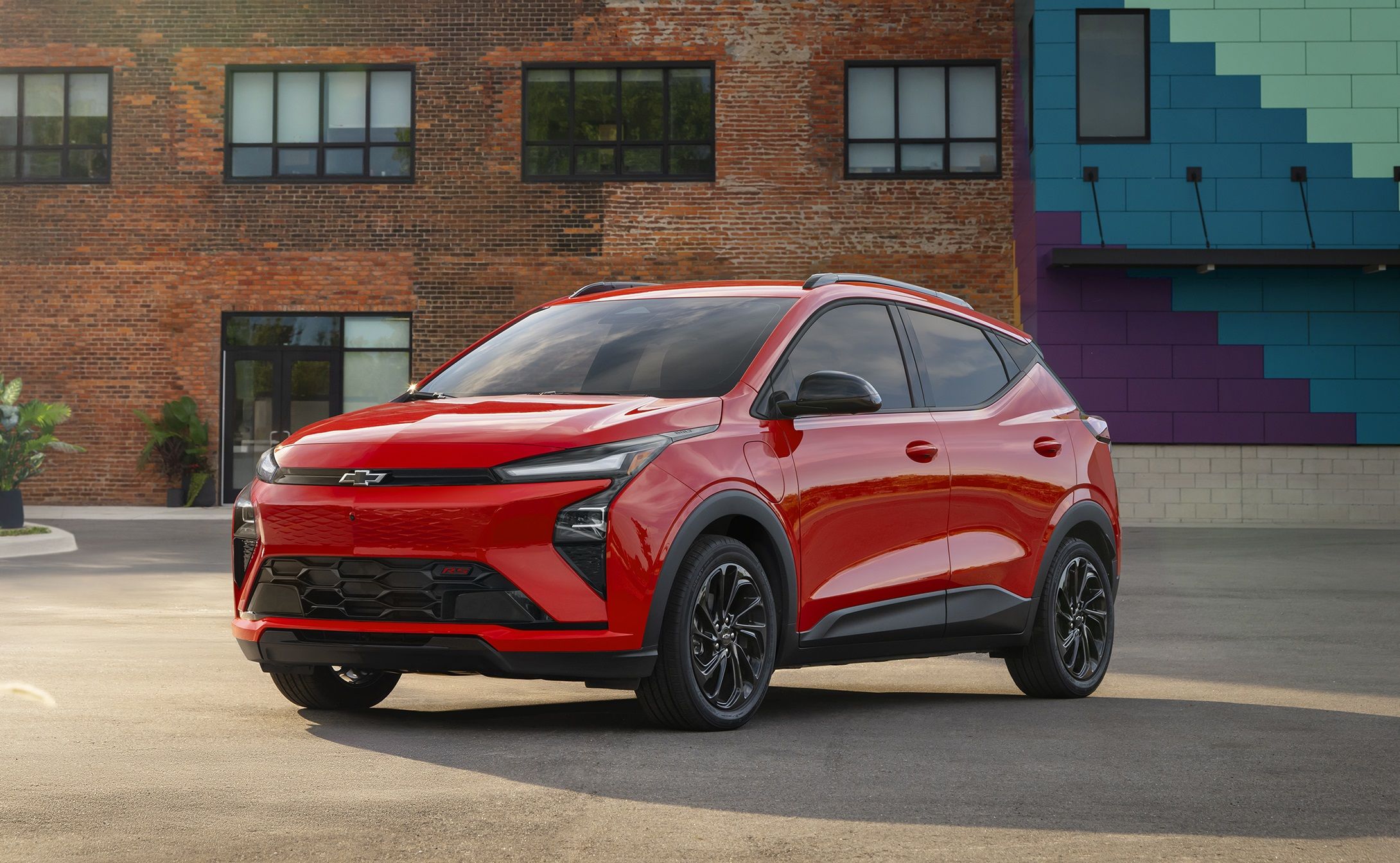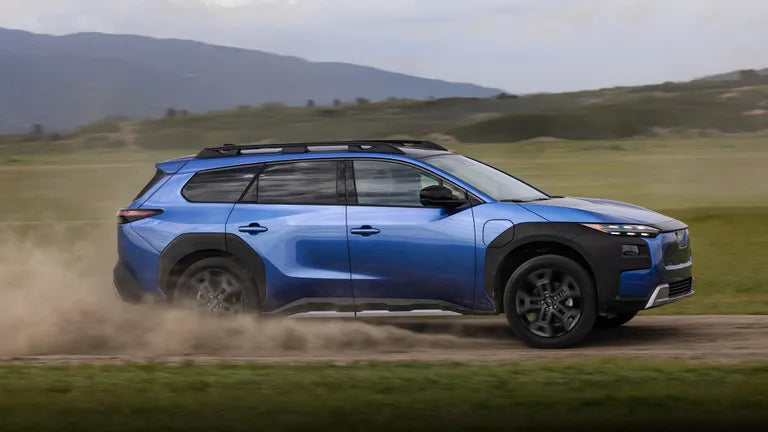Der brandneue Chevrolet Bolt 2027 ist viel mehr als eine Rückkehr – er ist eine Transformation. Während die vorherige Generation für ihre Erschwinglichkeit bekannt war, hinkte sie bei der Ladeleistung hinterher. Der neueste Bolt behebt dieses Problem mit einem Sprung auf 150 kW DC-Schnellladen , einem neuen NACS-Anschluss im Tesla-Stil , verbesserten Komponenten und verbesserter Software. Roadtrips werden jetzt realistisch.

Ladegeschwindigkeit: Von der Schwäche zur Stärke
Der alte Bolt hatte lediglich eine Leistung von 50 kW , sodass das Schnellladen über eine Stunde dauerte. Der Bolt von 2027 hat nun die gleiche Hardware wie die größeren Elektrofahrzeuge von GM, beispielsweise den Equinox, und bietet eine 2,5-mal höhere Ladegeschwindigkeit – volle 150 kW Spitzenleistung. Dadurch verkürzt sich die Ladezeit von 10 auf 80 % auf etwa 26 Minuten .
Mit diesem Sprung liegt es auf Augenhöhe mit neueren Elektrofahrzeugen wie dem Nissan Leaf und dem Mustang Mach-E . Es lässt auch Konkurrenten wie den Hyundai Kona Electric und den Kia Niro EV hinter sich, die sich immer noch auf 100 kW Spitzenleistung beschränken.
Reichweite, Anschluss und Lade-Ökosystem
Die Reichweitenverbesserung ist bescheiden – von 400 auf 410 Kilometer –, aber die neuen Ladefunktionen und der integrierte NACS-Anschluss machen den Unterschied. Dank des integrierten Anschlusses kann der Bolt nahtlos in das Supercharger-Netzwerk von Tesla eingebunden werden. Für Nicht-Tesla-Netzwerke müssen Besitzer einen CCS-zu-NACS-Adapter verwenden.
Unternehmen wie GM und EVgo ermöglichen Plug & Charge (ohne App oder Karte) an kompatiblen Stationen. Zunächst wird dies nur an bestimmten Standorten von GM Energy und EVgo unterstützt, eine breitere Einführung wird jedoch erwartet. Für Tesla Supercharger ist Plug & Charge bereits aktiv oder wird in Kürze verfügbar sein.
Unter der Haut: Überholung der Komponenten
Obwohl der Bolt 2027 in seiner Form dem alten Modell ähnelt, wurde er unter der Haube stark überarbeitet. Über 50 % seiner Teile sind neu oder modifiziert .
-
Eine neue X76-Antriebseinheit , die mit dem Equinox EV geteilt wird
-
Eine 65 kWh LFP-Batterie mit einem Cell-to-Pack-Design für mehr Effizienz
-
Neue Bremsmodule
-
Die Global B-Elektroarchitektur / Vehicle Intelligence Platform (VIP) für schnellere Software-Updates
Durch die Beibehaltung von Baustahl und einigen Karosserieteilen konnte GM die Kosten im Rahmen halten – was erklärt, wie der Einstiegspreis von 29.990 US-Dollar (einschließlich Lieferort) zustande kam.
Innenraumtechnik: Google-basiert, elegant, funktional
Im Innenraum präsentiert sich der Bolt in neuem Glanz: mit einem 11-Zoll-Kombiinstrument und einem 11,3-Zoll-Touchscreen mit Google-Technologie . Wie bei den anderen Elektrofahrzeugen von GM gibt es weder Apple CarPlay noch Android Auto , aber erste Tests zeigen, dass das Google-basierte System dazu in der Lage ist. Es zeigt Ladestationen entlang der Route an und ist, sofern verfügbar, mit der freihändigen Fahrfunktion Super Cruise kompatibel.

Timing, Positionierung und Marktstrategie
Wenn der Bolt 2027 im Januar 2026 auf den Markt kommt, wird sein Konkurrent in erster Linie der Nissan Leaf sein, der derzeit bei ca. 31.485 US-Dollar inkl. Lieferziel beginnt. Doch die Kombination aus verbesserter Technologie und niedrigem Preis verschafft dem Bolt eine einzigartige Nische.
GM warnt, dass es sich bei dem Modell um eine limitierte Auflage handeln könnte, sodass das Angebot knapp werden könnte. GM teilte mit, es gebe keine Produktionsbeschränkungen, aber die Knappheit könne bei den Käufern für Dringlichkeit sorgen.
Der Zeitpunkt ist strategisch: Die staatliche Steuergutschrift für Elektrofahrzeuge ist abgeschafft , und viele Autohersteller kämpfen darum, ihre Verkäufe aufrechtzuerhalten. GMs Vorstoß mit dem Bolt positioniert das Unternehmen in einer Zeit, in der Erschwinglichkeit und Leistung Hand in Hand gehen müssen , in der Nachfrage aufkommen kann.
Empfohlene Lektüre: Der Chevy Bolt 2027 wägt Versprechen mit Vorsicht ab








Aktie:
2027 Chevrolet Bolt kehrt als Amerikas billigstes neues Elektrofahrzeug zurück
Chevy Bolt vs. Nissan Leaf: Kampf der billigsten Elektroautos Amerikas